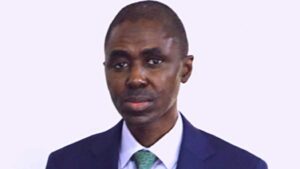CBN to fulfil outstanding FX forwards through banks — Report
By Sodiq Adelakun
The Nigerian naira’s prospects have improved following reports that the Central Bank of Nigeria (CBN) is likely to fulfill its forward foreign exchange (FX) obligations.
An unverified report suggests that the CBN will fulfill around 75-80% of the outstanding matured FX forwards through certain Nigerian banks.
Furthermore, the recent dovish statement from the US Federal Reserve has boosted positive sentiments in Nigeria’s foreign exchange market.
Federal Reserve Chairman Jerome Powell’s remarks after the two-day policy meeting have led to a weakening of the US dollar against most other currencies, as investors believe that rate hikes by the world’s most influential central bank may be coming to an end.
The Federal Open Market Committee has decided to keep interest rates unchanged at a range of 5.25 percent to 5.50 percent. Although the Fed acknowledged the resilience of the US economy despite its aggressive tightening measures over the past year, it has not ruled out the possibility of future rate hikes.
Consequently, JPMorgan Chase and Co. anticipates that by year’s end, the Naira to US dollar exchange rate will eventually strengthen towards N850 because of tighter regulations, more enticing rates, and favourable FX levels, which will likely discourage further dollarization and draw in some foreign capital into Nigeria.
The Tier 1 American bank anticipates that the FG will continue to be open to more exchange rate flexibility.
“Although driving up the value of the naira relative to the US dollar is vital,” he continued, it becomes challenging due to “significant delays in unmet foreign exchange demand and low net foreign exchange reserves.”
The most valuable bank in the world forecasts that the concurrent push for tighter monetary conditions might likely reinforce recent efforts to reinstate a flexible exchange rate regime in Africa’s largest economy.
The difference between the parallel rate, which is currently a little over 1,000 naira, and the interbank exchange rate has shrunk in recent days, rising from 750 to over 900 naira against the greenback.
The Federal government also intends to implement new regulations in the forex market with the goal of strengthening the value of the naira and suppressing illicit currency trading activities.
The new regulation will make sure that the “illicit” black market is denied supplies and will broaden the official market to include all lawful transactions.
“We think all of that will happen before December, and maybe in a matter of a few weeks we will begin to see the results, so before the end of the calendar year, the naira should find its true value, not the one that is being done currently in the parallel market,” according to Chairman of the Presidential Committee on Fiscal Policy and Tax Reforms, Mr. Taiwo Oyedele.
Finally, Nigeria’s finance minister, Wale Edun, stated last month that the country anticipates receiving $10 billion in inflows in the upcoming weeks.
These inflows would help ease liquidity and clear the backlog of past-due forward contracts that are weighing on the naira.
Edun had also mentioned at the summit that President Bola Tinubu signed two executive orders last week with the same goal of stopping the flow of dollars into the parallel market from the official FX window.
The first would allow dollar-denominated instruments to be issued and sold to Nigerian citizens who own dollars, while the second would allow dollar-denominated bonds to be issued and sold to Nigerians living abroad as well as foreign investors. Edun stated that the gazetting process for both executive orders is currently underway.




